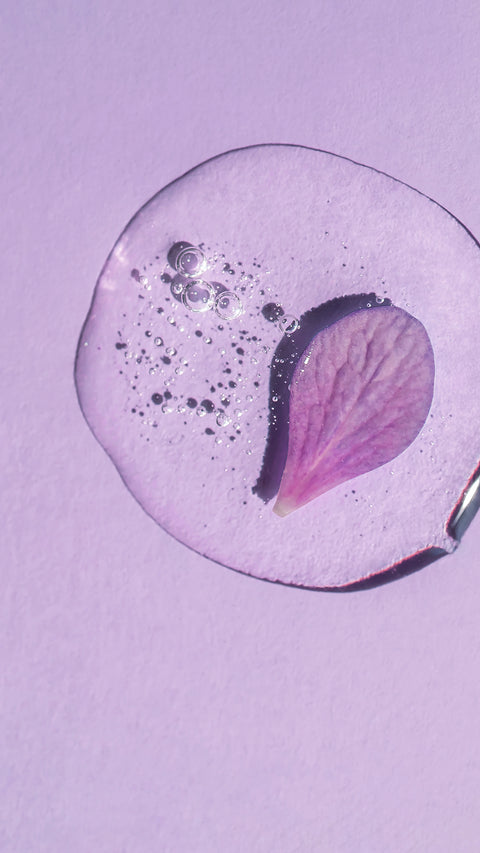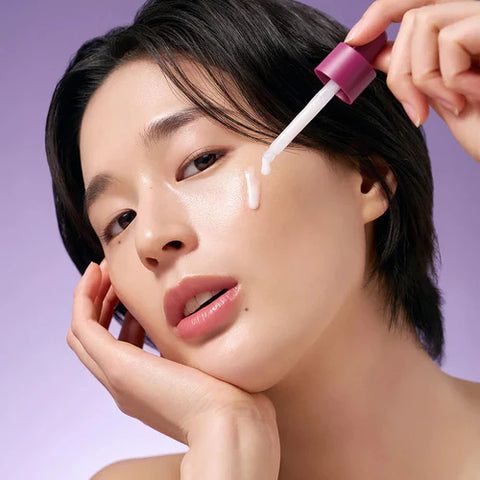Exfoliation is beneficial for all skin types, including dry skin. By exfoliating, you remove dead skin cells from the skin's surface and thereby prevent clogged pores, which counteracts blackheads, for example.
Benefits of exfoliation
- Removes dead skin cells, dirt and sebum accumulated on the skin
- Clean the pores
- Gives the skin a clearer tone
- Improves skin texture and evens out skin tone
- Helps active ingredients to be better absorbed
It is important to choose an exfoliation routine that suits your skin type and to use the product at the right frequency. Too much exfoliation can damage the skin's protective barrier, cause skin infections and worsen acne.
Our skin renews itself in cycles of approximately 28 days. However, this is affected by external factors such as dry and cold air, heat, air conditioning and stress. Regular and gentle exfoliation is particularly important for the well-being of the skin, especially during the winter, and also stimulates cell renewal. When we are young, the skin can take care of removing dead skin cells by itself, but with age this ability declines and needs a little help from exfoliating products.

Exfoliating products and their differences
Exfoliation can be done either mechanically or chemically.
Mechanical exfoliation uses a tool, such as a brush, sponge, or scrub to physically remove dead skin cells. Chemical exfoliation uses acids, such as AHA or BHA, to gently dissolve dead skin cells. Chemical exfoliation is usually gentler on the skin if used correctly and focuses on preserving the skin's protective barrier.
Yeppo tip: We do not recommend brushes for facial exfoliation, as brushes are often not replaced often enough and bacteria can spread to the skin when used.

How often should one exfoliate the skin?
How often the skin needs to be exfoliated depends on the skin's individual needs and tolerance.
Dry skin
Should be gently exfoliated with a mild product, once a week may be enough. A light chemical peel is often best, as mechanical peels can irritate dry skin.
Recommendation: [Isntree] Chestnut AHA 8% Clear Essence
Combination skin
Combination skin is usually either more prone to dryness or oiliness, so choose an exfoliating product according to your main skin type. We recommend starting with 1-2 times a week.
Recommendation: [Cosrx] Refresh AHA BHA Vitamin C Daily Toner
Oily skin
Exfoliation is important to prevent excess sebum from clogging pores. Stronger chemical peels or sometimes mechanical peels can suit oily skin, but avoid too strong exfoliators if you have a dark skin tone or if dark spots appear after acne.
Recommendation: [Numbuzin] No.4 Pore Zero Peeled Egg Toner Pad
Acne prone skin
Choose a mild chemical peel to avoid irritation. In general, 1-3 times per week is a good amount, but you can experiment to find the right frequency.
Recommendation: [Torriden] Balanceful Cica Toner Pad
Sensitive skin
Mainly choose a mild chemical peel, and adjust the frequency according to the skin's reaction and tolerance.
Recommendation: [Pyunkang Yul] Peeling Gel

Choice of exfoliating product
- AHA acids suit dry and mature skin and work on the skin's surface to even out texture and help with lines and wrinkles.
- BHA acids are good for clogged and enlarged pores, blackheads and acne and also suitable for sensitive skin.
- LHA acids (Lipo Hydroxy Acid) is a milder form of salicylic acid and works effectively for acne while being gentle.
Skin care after exfoliation
Remember to moisturize the skin well after exfoliation. Also consider which active ingredients you combine with exfoliation in the same routine, especially if your skin is sensitive.
The recommended products in this article have been selected based on the product's characteristics. Remember that everyone's skin is different and that not all ingredients are suitable for all skin types.



 info@yepposoonsoo.se
info@yepposoonsoo.se
 14 dagar returrätt
14 dagar returrätt
 PCI-DSS Compliant
PCI-DSS Compliant
 PayPal Buyer Protection
PayPal Buyer Protection
 Klarna – Pay Securely
Klarna – Pay Securely